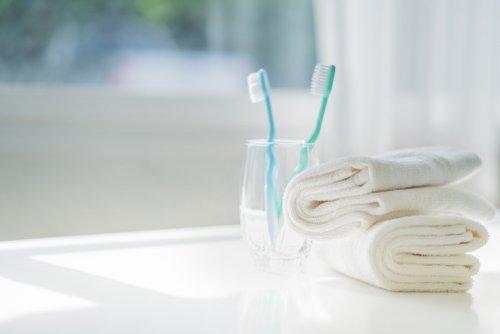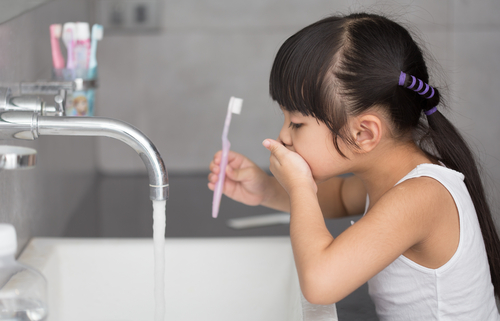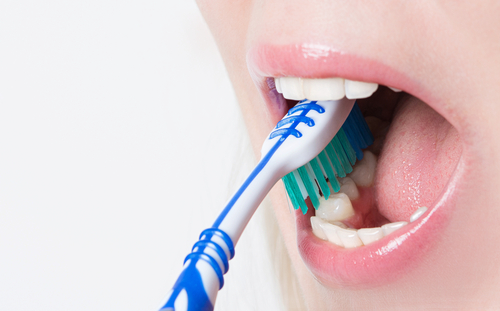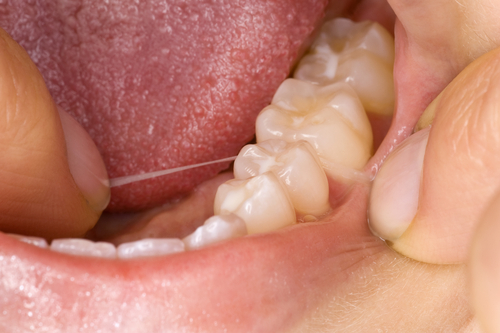
How to Disinfect Your Toothbrush and Keep It Clean
August 26, 2022
What If I Ignore A Decay Tooth?
October 5, 2022How To Maintain A Good Oral Hygiene?

How To Maintain A Good Oral Hygiene? Dental or oral health is an important component of overall health and well-being. Your mouth might become an easy target since it is the initial site of entry for viruses that are airborne or droplets. Hence, it is highly important to be aware of good oral hygiene practices in your daily life for you and your family members.
Oral hygiene is an important aspect of personal hygiene that should not be overlooked. It is critical to adhere to good oral hygiene measures. Your dental health is more critical than you may know. Learn how your oral, dental, and gum health may influence your overall health.
Before we get into the specifics, please define what you mean by dental hygiene. The process of keeping and cleaning your teeth, gums, and mouth is known as oral hygiene. Brushing your teeth at least twice a day and flossing once a day are required to meet oral hygiene standards. Not only do these habits keep your mouth free from dental issues, but the food you eat also plays a role.
Practicing good oral hygiene and teaching your kids to make their lives better forever. Read on!
How to Maintain Good Oral Hygiene?
Table of Contents

Proper brushing
Brushing your teeth has some inside meaning to it. When someone says brushing teeth, especially an expert, it denotes the proper brushing. What do you mean by proper brushing? Brushing is a daily routine, whereas proper brushing has some goals.
Yes, proper brushing cleans your mouth properly both on the sides and the surface of your mouth. It is also essential to clean your tongue while you brush your teeth. This practice aids in the removal of microorganisms from the mouth and promotes excellent breath.
Dental clinic visit
Many of us are unconcerned about going to the dentist even once a year for a routine check-up. We don’t bother seeing a dentist to see whether we have any dental problems.
We think of going to the dentist only when we have pain or problems with our teeth. We need frequent examinations to meet our high standards for oral hygiene. A dentist analyses our mouth for infection or decay so that we might avoid a huge disaster. This is a high-quality measure that we take to avert severe problems before it’s too late.
We are unable to examine the mouth by reaching all ends and corners to see if there are any dental problems. A visit to the dentist’s clinic at least once every six months can provide numerous benefits in our lives. A comprehensive cleaning by a dentist may eliminate all dirt from the mouth.
Proper flossing
Flossing enhances good dental health by raising and eliminating plaque and food particles from between your teeth. Food particles that are deep enough between teeth are not removed by the bristles of a toothbrush. The flossing method prevents food particles from easily accumulating between teeth.
As a consequence, tooth plaque and gum disease are completely avoided. Once a day flossing removes plaque, bacteria, and food debris in your mouth.
Appropriate toothpaste and toothbrushes
It is critical to maintain proper dental hygiene by using an effective toothbrush and paste prescribed by your dentist.
Rinsing
After brushing your teeth and eating, properly rinse your mouth. You may also use mouthwash daily to keep bacteria at bay and preserve your gums.
Floss instead of a toothpick
Flossing rather than a toothpick is recommended to remove sticky food particles between your teeth. A toothpick can cause gum injury and infection.
Tips to Maintain Good Oral Hygiene

- Brushing your teeth twice a day, both in the morning and at night, is preferred. Two minutes of brushing using a toothbrush and paste is a must daily.
- Use the toothbrush for you alone and never share it.
- Clean and disinfect the toothbrush after each use with an antimicrobial mouthwash.
- Keep your brush in a separate place or holder rather than a common holder.
- Eat a nutritious diet and minimize your intake of sugary foods and beverages.
- Change your toothbrush every two months, without fail.
Above all, a disciplined lifestyle is a must to meet your goal of good oral hygiene.
Avoid smoking and alcohol consumption

Drinking alcohol or smoking cigarettes is detrimental to your oral health. Your gum and tooth health is affected to a great extent due to smoking and alcohol consumption.
The high concentration of chemicals in nicotine, along with the acidity of alcohol, can cause gingival tissue damage and dramatically raise your risk of mouth cancer. People who practice poor oral hygiene are at a higher risk of developing these dangerous and unpleasant disorders.
When to see a dentist?

If you suspect that you have a dental problem, you must go to the dental clinic. An instantaneous inspection is required to deal with adequate dental care. The dentist checks your mouth and diagnoses the problem to help you.
The following are signs that you need to take seriously for a dental check-up.
- Gums that are swollen and reddish
- Bleeding gums after brushing, and occasionally after flossing.
- You can be bothered or sensitive to hot or cold meals.
- For a long time, I had bad breath.
- Teeth thinning
- Gum recession
- Pain in your teeth or gums occurs frequently.
Any of the aforementioned symptoms, when combined with a fever, may indicate an infection. Make sure to notify your dentist of any symptoms.
How To Maintain A Good Oral Hygiene? – Final words

We all want to enhance our teeth, so to do so, we must put additional effort into how we care for them. Strive to get a check-up every year if you do not notice any problems with your teeth and to maintain excellent oral hygiene.
Cavities and gum disease are avoidable dental diseases, but the key is to maintain regular dental care practice. This includes flossing and brushing regularly, as well as using mouthwash at the right intervals. Fresh breath is not the only benefit of good oral health. It also helps to avoid gum disease and improves your general health.




